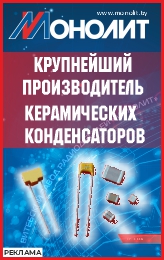Why peer review is necessary
The reviewer transfers his experience and knowledge and contributes to the process of creating an article as a creative product. The reviews exclude criticism directed at the identity of the authors.
The reviewer considers the manuscript of the article and evaluates:
How relevant is the manuscript to the scientific style of presentation;
The importance of the issue raised in the article;
How complete is the list of references;
How convincing are the author’s arguments in today's discussion;
Is the article is ready for publication in the current view?
Organisation of peer review1. Review is the process of evaluative analysis of a scientific article submitted for publication in the Journal. A review comprises an independent written scientific work carried out by experts in the same subject area as that to which the reviewed work belongs.
2. The mandatory review comprises the primary documentation of the examination conducted by the Editorial Board to determine the quality and conformity of the material with the scientific and thematic focus of the Journal.
3. The Journal reviews all materials submitted to the Editors corresponding to the format and subject matter, with a view to their expert evaluation.
4. Leading experts in the field of the peer-reviewed materials, who have published on a similar topic in the last three years, are invited to review articles.
5. A reviewer cannot be the author or co-author of the work under review. Manuscripts may not be reviewed by employees of the same institution where the author works or studies in postgraduate or doctoral programs.
6. The Journal uses double-blind review of submitted manuscripts. This means that the identities of reviewers and authors are concealed from each other throughout the review process. Any correspondence between the reviewer and the author takes place electronically via the Journal’s website.
7. The submission of an article for review is notified by a letter signed by the head of the Editorial Board, in which the deadline for submitting the review (typically three weeks) is indicated. This period is further monitored. In some cases, the reviewer is also sent a memo about the rules for writing reviews.
8. Based on the analysis of the article, the reviewer decides: a) to recommend the manuscript for publication without revision or with revision; b) to forward for additional review; c) to reject the manuscript for publication. The compiled review is submitted to the Editorial Board and its conclusions are recorded in electronic form.
9. The Editorial Board sends the results of the examination to the authors of the submitted manuscript.
10. In the case of an author disagreeing with the comments of the reviewer, his or her reasoned statement will be considered by the Editorial Board.
11. Following revision based on the comments of the reviewer, the article is sent for re-review at the discretion of the Editorial Board.
12. Reviews are stored in the Journal’s Editorial Office for five years and sent to the Higher Attestation Commission of the Ministry of Education and Science of the Russian Federation on request.
 rus
rus TS_pub
TS_pub technospheramag
technospheramag technospheramag
technospheramag ТЕХНОСФЕРА_РИЦ
ТЕХНОСФЕРА_РИЦ


